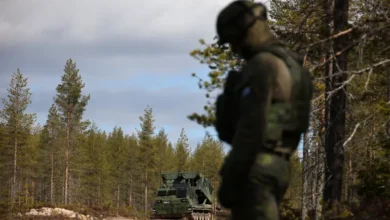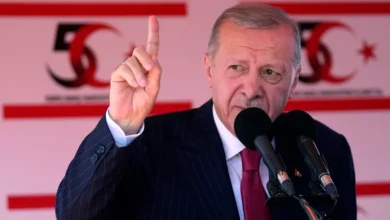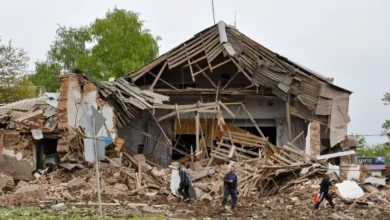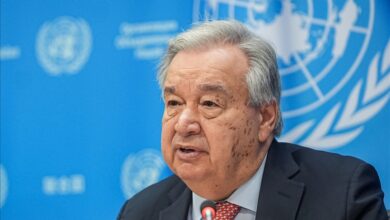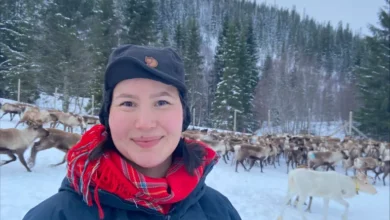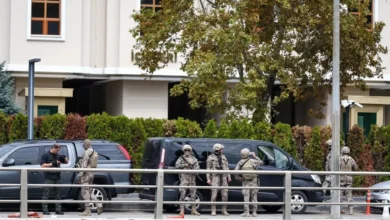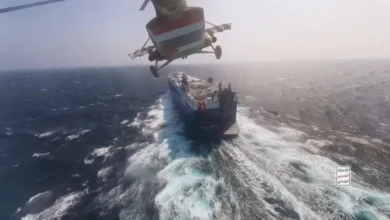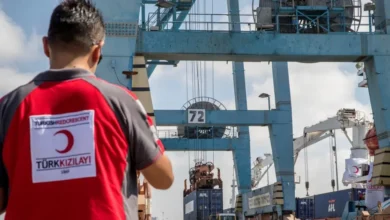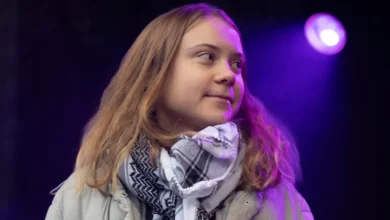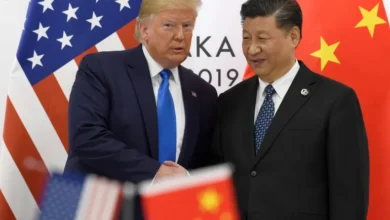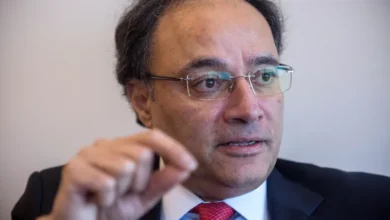‘We are waging an existential war’: M23’s Bertrand Bisimwa on DRC conflict
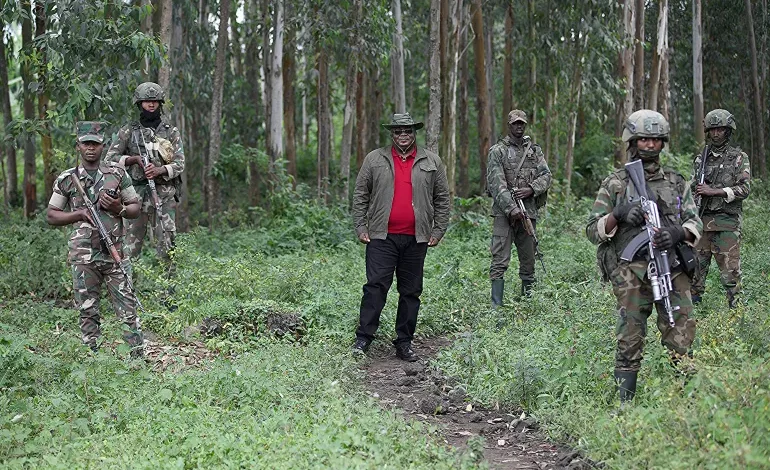
For three years, the eastern Democratic Republic of the Congo (DRC) has been embroiled in an armed conflict between the army and the M23 rebel group that has killed hundreds of people and displaced nearly two million.
M23 was first formed after a mutiny within the Congolese national army (FARDC) in 2012. Though the initial rebellion was crushed, the group took up arms against the army and allied “Wazalendo” self-defence groups again in 2022, and has since seized swaths of territory in North Kivu province.
M23 says it is defending the interests of minority Congolese Tutsis, many of whom say they suffer discrimination and exclusion in DRC for their ethnic links to Rwanda’s Tutsi community.
Kinshasa sees M23 as the greatest security threat it currently faces, with regional tensions escalating as bodies including the United Nations accuse Rwanda of supporting M23 with troops and weapons, fuelling the rebellion – something Rwanda denies.
Despite attempts at ceasefires and negotiations – including the 2022 Nairobi peace process and recent mediation efforts by Angola – fighting has continued. In Lubero, M23 advanced several dozen kilometres in just a few days in December.
Bertrand Bisimwa, the head of the political wing of M23, maintains that the group is fighting a “defensive” war. He spoke to Bojana Coulibaly, a researcher specialising in peace and security in Africa’s Great Lakes region, about the war in eastern DRC and hopes that dialogue will prevail.
Bojana Coulibaly: Can you tell us what M23’s demands are?
Bertrand Bisimwa: Our demands boil down to a struggle for survival. We are waging an existential war because the Congolese government is subjecting part of its population to death. And this didn’t start today. It has been going on for decades, where people are forced to seek refuge, fearing death, avoiding being killed. There is hate speech and there is also a kind of radicalisation that is taking shape. A part of the citizens, namely the Tutsi, serve as scapegoats for the Congolese government to distract the people from its governance failures.
So, we told ourselves that we must not sit idly by and watch our citizens being killed in this way. This is why we are currently waging a defensive war to protect these citizens. So that they do not continue to be put to death. They are not second-class citizens. The state must take care of them and not consider them as stateless, or who are not Congolese. They are full-fledged Congolese citizens, like all other Congolese.
Coulibaly: Recently, there’s been intense fighting between government forces and M23 in Great North Kivu, in the Lubero territory. Could you explain what happened?
Bisimwa: In March, the mediator in the crisis between Rwanda and the DRC, Angola’s President [Joao] Lourenco, had invited us to Luanda to convey the message from the African Union which was to sign a ceasefire. We signed the ceasefire, but Kinshasa refused to sign it. Later, Kinshasa simply continued the war against us, and we started again – we continued to defend ourselves.
On December 15, a meeting was scheduled between the Congolese government and the Rwandan government, which also had just signed their ceasefire, although the Rwandan government or the Rwandan military are not on Congolese soil and are not fighting.
The Congolese government wanted to have a victory on the ground before the 15th. They put pressure on us, with the aim of obtaining a victory that would put them in a comfortable position in order to put Rwanda in front of a fait accompli – that either they sign what Kinshasa wanted, or they would practically derail the Luanda meeting. That was the government’s objective.
This is how they put pressure on us: they gathered more than 22,000 men assembled around 15 regiments, supported by the FDLR [Democratic Forces for the Liberation of Rwanda, an armed rebel group] – the former genocidaires of the 1994 genocide against the Tutsi in Rwanda – supported by the Wazalendo and they use them against us. We understood the manoeuvres, so we prepared sufficiently to defend ourselves.
This is what led to this escalation of violence, because for us, it was essential to thwart this military offensive on their part, and we succeeded in doing so.
We learned that they continue to prepare to reignite the war, and if they do reignite it, we will continue to defend ourselves to prevent them from continuing down that path, because we believe that for peace, it is necessary to thwart the path of war.
Coulibaly: The United Nations says M23’s advance towards the Great North Kivu as well as the increase in control of areas are a desire for expansion and conquest of territory. How do you respond?
Bisimwa: Since we started our war, we are reacting to the offensive from the government that attacks us every day. And each time, we say it: if they continue to attack us, we will silence the weapons everywhere they shoot at us.
The logic of war dictates that when you have supremacy over the other, you take the space from which they were shooting at you. And we fight for that. When we fight against the government, those who attack us, we are obliged to silence the weapons from the space where they shoot. And that is what allows us to stop the war. So, we cannot be shot at and just defend ourselves without taking the weapons from the opponent. That would be illogical, it would mean continuing to submit ourselves to death and to submit to death the people that are in our area.
You will see that every time we gain the upper hand over the opponent and take the space from which they were shooting at us, we stop there, and we wait. If they launch the same offensive again, at that moment we advance. So, we cannot be blamed for defending ourselves and for winning against the offensive that is imposed on us.
When there is war, people are afraid and can flee, because they must seek shelter. And this is a completely normal attitude. So, we cannot place this responsibility on just one party. I think there is a kind of refusal to face reality at the level of the United Nations as well because we succeeded during our liberation action in bringing back or emptying more than nine camps of displaced persons that were set up in the area that we control today. OCHA recently published a report where it stated that more than 480,000 families have returned to their homes, in our area. And so, I think that instead of starting to condemn, everyone needs to look at themselves, and we must have the courage to say what is actually happening on the ground.
